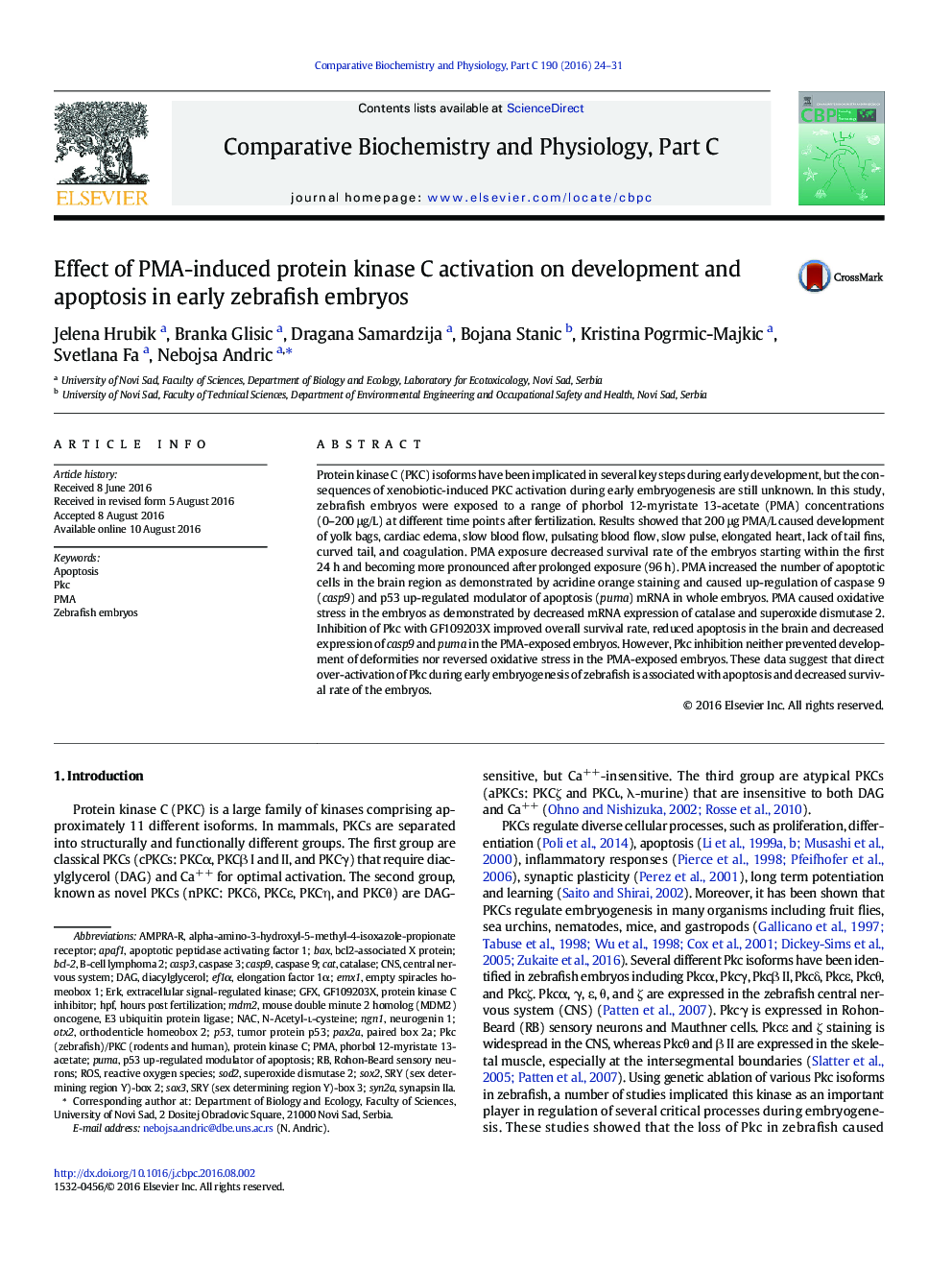| Article ID | Journal | Published Year | Pages | File Type |
|---|---|---|---|---|
| 1977085 | Comparative Biochemistry and Physiology Part C: Toxicology & Pharmacology | 2016 | 8 Pages |
Protein kinase C (PKC) isoforms have been implicated in several key steps during early development, but the consequences of xenobiotic-induced PKC activation during early embryogenesis are still unknown. In this study, zebrafish embryos were exposed to a range of phorbol 12-myristate 13-acetate (PMA) concentrations (0–200 μg/L) at different time points after fertilization. Results showed that 200 μg PMA/L caused development of yolk bags, cardiac edema, slow blood flow, pulsating blood flow, slow pulse, elongated heart, lack of tail fins, curved tail, and coagulation. PMA exposure decreased survival rate of the embryos starting within the first 24 h and becoming more pronounced after prolonged exposure (96 h). PMA increased the number of apoptotic cells in the brain region as demonstrated by acridine orange staining and caused up-regulation of caspase 9 (casp9) and p53 up-regulated modulator of apoptosis (puma) mRNA in whole embryos. PMA caused oxidative stress in the embryos as demonstrated by decreased mRNA expression of catalase and superoxide dismutase 2. Inhibition of Pkc with GF109203X improved overall survival rate, reduced apoptosis in the brain and decreased expression of casp9 and puma in the PMA-exposed embryos. However, Pkc inhibition neither prevented development of deformities nor reversed oxidative stress in the PMA-exposed embryos. These data suggest that direct over-activation of Pkc during early embryogenesis of zebrafish is associated with apoptosis and decreased survival rate of the embryos.
